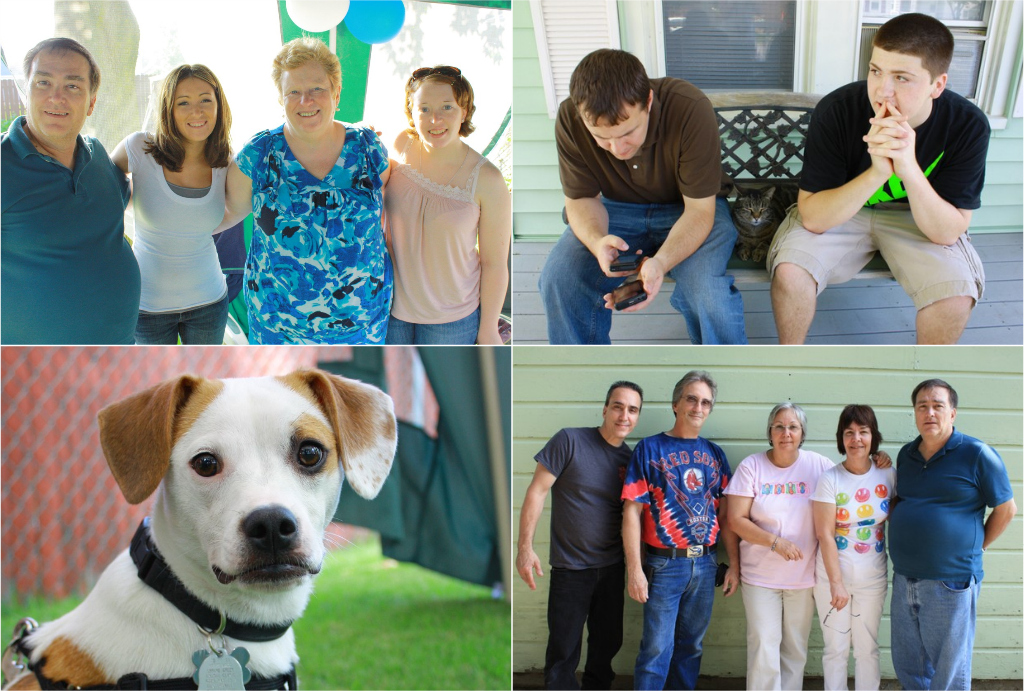The intersection of Baha’i teachings and Aboriginal perspectives on love and family manifests a profound dialogue about the essence of community, kinship, and unconditional affection. The Baha’i Faith, with its emphasis on unity and the oneness of humanity, aligns harmoniously with many Indigenous worldviews that celebrate familial bonds and collective responsibility. In exploring this confluence, one may discern a model of love that transcends historical barriers and invites a reexamination of societal norms surrounding family structures.
To initiate this discourse, it is essential to contextualize the Baha’i principles that underscore the significance of love and community. Central to Baha’i teaching is the belief in the unity of mankind, which posits that all individuals, regardless of their backgrounds, are interconnected. This interconnectedness is not merely a philosophical notion but a call to action that urges adherents to cultivate an environment of compassion and understanding. Love, as defined within this framework, is more than an emotional sentiment; it is an active commitment to the welfare of others, especially within one’s family. The familial unit, in this regard, extends beyond mere blood relations to encompass those with whom one has shared experiences and nurtured bonds.
Indigenous cultures, particularly Aboriginal communities, often view the concept of family through a lens that incorporates broader kinship ties, wherein every member of the community plays a vital role in an intricate web of support and care. This perspective reverberates with Baha’i ideals, emphasizing not only the sanctity of the nuclear family but also the importance of collective affiliation and communal responsibilities. The distinct yet complementary philosophies of love within Baha’i teachings and Aboriginal cultures challenge conventional notions of family by emphasizing connection, belonging, and mutual respect.
Moreover, traditional Aboriginal narratives frequently depict love as a guiding force that fosters healing and reconciliation within the family unit and, by extension, the community. In many Aboriginal languages, the concept of love is interwoven with concepts of respect, harmony, and balance. This expansive understanding of love correlates with the Baha’i view that love serves as the foundation for all relationships and is pivotal in the establishment of a just and equitable society. In both belief systems, love acts as a catalyst for transformation; it inspires individuals to transcend personal grievances and to forge connections based on empathy and solidarity.
What emerges from this synthesis of thought is not merely an idealistic portrayal of love but a pragmatic approach to fostering family-oriented environments that prioritize emotional well-being and societal cohesion. By adopting an expansive definition of family that includes the community, both Baha’is and Aboriginal peoples promote a paradigm shift. This shift encourages society at large to reconstruct its views on familial obligations and redefine the connections that constitute familial love.
Delving deeper, the role of education becomes paramount in this discourse. Both Baha’i teachings and Aboriginal traditions emphasize the balance between knowledge and ethics. Baha’i writings elucidate the importance of education as a means to cultivate the innate potential within individuals, nurturing a capacity for love that is directed toward family and beyond. Conversely, Aboriginal perspectives often share knowledge through storytelling, where elders impart lessons about familial ties and relational dynamics. Consequently, the merging of these educational paradigms not only enriches individual understanding but also cultivates a collective consciousness aimed at fortifying familial bonds within the broader community.
Furthermore, the importance of inter-generational relationships stands out within both traditions. In Aboriginal communities, elders are revered for their wisdom and are pivotal in transmitting cultural values and practices related to kinship. The Baha’i emphasis on honoring parents and fostering respectful relationships within families mirrors this appreciation for inter-generational ties. Such relationships are not merely about lineage; they embody the transmission of love, ethical values, and a legacy that influences future generations. This notion challenges linear familial structures and highlights a circular, perpetual process of growth and development through love and support.
Yet, despite the alignment of these principles, challenges remain. The historical marginalization of Aboriginal voices within the tapestry of Western narratives often obscures their profound understanding of love and community. Equally, the Baha’i narrative, while rooted in promoting unity, may inadvertently displace Indigenous wisdom by failing to engage authentically with their perspectives. Therefore, it becomes imperative for Baha’is and Aboriginal peoples to engage in dialogues that bridge these philosophical divides and cultivate mutual understanding. Such discourse can lead to greater empathy and an enriched comprehension of family, love, and community.
In sum, the exploration of Baha’i teachings alongside Aboriginal conceptions of love unveils a rich tapestry of familial interconnectedness that defies simplistic understandings. It invites individuals and communities to reconsider the meaning of family, centering it within a framework that values love as a transformative force. The call to embrace an expansive definition of family has the potential to reshape societal views, encouraging a collective commitment to nurturing not just immediate familial relationships but the broader community. As we ponder the profound intersections of these teachings, we are led toward a future that promises not only deeper connections but a rejuvenation of the very essence of love, embodied through family and community.
